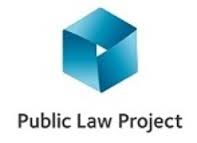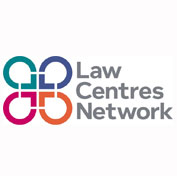June 2017
Legal Advice Centre (University House)


Falmouth & Plymouth Skype Advice Clinics
Grant: £3,900
June 27, 2017
| Increase Public Understanding | Advance High Quality Thinking | Increase Access to Employment |
| User of Advice Organisations | ||
| Implications of Brexit | Legal Needs in Healthcare Settings | Influence the Online Court |
| Develop Robust Evidence Base | ||
| Understand Role of Technology | ||
| Law Reform, Policy and Regulation | ||
| Communications to Disseminate Learning | ||
University of Nottingham


Exploring and improving children and young people’s understanding of their legal rights as suspects: A scoping study
Grant: £57,600
June 21, 2017
The criminal process adopts an adult rather than child-focused approach when dealing with children and young people (CYP) as suspects. There has been very little research undertaken which explores suspects legal rights from CYPs’ perspective. In this scoping study, the stories of CYP will contribute to the development of a robust evidence base from which to inform change. Open-ended questions will be asked about what they understand to be their legal rights and how they exercised such rights. How CYP were treated in the criminal process will also be investigated; if legal protections were upheld, and whether decision-making was fair and just. The findings will be used to help inform the design of electronic interventions intended to improve suspects’ understanding of their legal rights.
CYP will also be asked for their views on how complex information about their legal rights can best be presented to assist them in making informed decisions. This will include exploring gamification and the creation of tasks that engage and encourage knowledge and skill development. Discussion with CYP will explore using different formats to help make complex information accessible to CYP of different ages, educational and mental abilities.
| Increase Public Understanding | Advance High Quality Thinking | Increase Access to Employment |
| Young People | ||
| Implications of Brexit | Legal Needs in Healthcare Settings | Influence the Online Court |
| Develop Robust Evidence Base | ||
| Understand Role of Technology | ||
| Law Reform, Policy and Regulation | ||
| Communications to Disseminate Learning | ||
Advocate (formerly Bar Pro Bono Unit)


Digitally futureproofing the Bar Pro Bono Unit
Grant: £70,200
June 21, 2017
The project aims to ensure that the Unit is at the forefront of using technology to support Litigants in person with legal problems.
This is the second stage of two to use of information technology to provide an easy to use guided application process for applicants and referrers and to link volunteer barristers more quickly and effectively with applicants with the overall objective of ensuring that unit operates as efficiently as possible with its resources.
It will create
- a clear, informative and accessible website and online application service.
- Improve website pathways for people with disabilities, including visual, hearing, cognitive and motor impairments)
- Implementing a Salesforce tool, Marketing Cloud, to regularly send case summaries seeking assistance with volunteer barristers, based on urgency, appropriate area of law, circuit and year of call
- Integrating and automating the online application service and volunteer portal with the database the Unit uses to manage cases; Salesforce.
| Increase Public Understanding | Advance High Quality Thinking | Increase Access to Employment |
| People Working in the Law | ||
| Implications of Brexit | Legal Needs in Healthcare Settings | Influence the Online Court |
| Develop Robust Evidence Base | ||
| Understand Role of Technology | ||
| Law Reform, Policy and Regulation | ||
| Communications to Disseminate Learning | ||
Young Citizens (Citizenship Foundation)


Advancement of Public Legal Education (PLE) for young people in Wales
Grant: £60,000
June 21, 2017
This project aims to build on the Citizenship Foundation’s work over the past six months, to improve the legal capability of young people in Wales. It responds to needs identified in and out of schools, within the legal profession, by the Welsh Government and academic institutions.
It will,
- continue to work with secondary schools and colleges to better understand their PLE needs, and shape initiatives accordingly.
- continue to increase the diversity and number of schools participating in the Mock Trials competitions – encouraging new schools from less advantaged areas to take part in new and existing heats.
- make new bilingual Law in Wales resources available for free to all schools via Hwb (the Welsh Government’s schools digital platform) and through the SmartLaw website – and adapt existing resources in accordance with the Welsh Government’s devolved powers.
- continue to create flexible and affordable opportunities for legal and other professionals to further PLE in schools and colleges.
A feasibility study on delivering PLE to young people outside the formal education sector – including youth groups, roma people and pupil referral units will also be undertaken.
| Increase Public Understanding | Advance High Quality Thinking | Increase Access to Employment |
| Young People | ||
| Implications of Brexit | Legal Needs in Healthcare Settings | Influence the Online Court |
| Develop Robust Evidence Base | ||
| Understand Role of Technology | ||
| Law Reform, Policy and Regulation | ||
| Communications to Disseminate Learning | ||
Public Law Project


Brexit - Rule of Law
Grant: £60,000
June 21, 2017
Funding to support and enable PLP to engage constructively and effectively with imminent parliamentary law-making and law reform processes arising from Brexit (including, but not limited to, the Great Repeal Act (GRA)).
Whilst some funds may be used to support existing posts so as to create additional capacity within PLP to work on Brexit issues (particularly those of PLP’s lead lawyers) the substantial majority will be utilised to retain a consultant to provide PLP with immediate and ringfenced capacity to devote to the proactive development of its work programme relating to Brexit.
The work will facilitate PLP to:
- Engage with other civil society groups to develop working partnerships and contribute to a shared policy agenda;
- Inform the debate through the publication of briefing and/or information notes targeted to specific audiences;
- Build internal capacity and understanding through an internal training programme; and
- Gather expertise and intelligence to specifically inform PLP’s own casework strategy.
This is part of a wider programme of work through which PLP intends to achieve its overall objective to promote and preserve the Rule of Law.
| Increase Public Understanding | Advance High Quality Thinking | Increase Access to Employment |
| People Working in the Law | ||
| Implications of Brexit | Legal Needs in Healthcare Settings | Influence the Online Court |
| Develop Robust Evidence Base | ||
| Understand Role of Technology | ||
| Law Reform, Policy and Regulation | ||
| Communications to Disseminate Learning | ||
Refugee Action


Frontline Immigration Project: Increasing access to immigration advice for migrants
Grant: £80,000
June 21, 2017
The Frontline Immigration Advice Project is significantly improving access to quality, publicly-available OISC-accredited immigration advice for asylum seekers, refugees and migrants who have complex immigration issues. It is the first nationally-delivered project to do this, with a specific and dedicated focus on organisational capacity-building to secure OISC registration; improved advice coordination; and the sharing and adoption of best practice. The acute scarcity of this advice means thousands of vulnerable people are unable to attain justice, safety and dignity (Clayton, Models of Immigration Advice, 2015).
The project is empowering frontline support organisations in key sectors to increase the delivery of quality, sustainable immigration advice through an innovative capacity building programme, involving training, coaching, case-sharing, organisational development, and regional coordination. All geographical areas where there is asylum dispersal and migrant communities have been reached, engaging 86 individual organisations nationally to date. Year 2 and 3 will deliver tailored training packages and capacity building support to provide more routes to acquiring immigration advice registration, extend organisational support to offer an e-learning platform and strengthen regional immigration advice coordination.
| Increase Public Understanding | Advance High Quality Thinking | Increase Access to Employment |
| People Working in the Law | ||
| Implications of Brexit | Legal Needs in Healthcare Settings | Influence the Online Court |
| Develop Robust Evidence Base | ||
| Understand Role of Technology | ||
| Law Reform, Policy and Regulation | ||
| Communications to Disseminate Learning | ||
Pascoe Pleasence Limited


Dissemination of the Scale Development Project
Grant: £12,000
June 21, 2017
Preparation of a publication on the results of research to develop standardised measures for legal capability, for submission to a high impact academic journal.
| Increase Public Understanding | Advance High Quality Thinking | Increase Access to Employment |
| Related Research | ||
| Implications of Brexit | Legal Needs in Healthcare Settings | Influence the Online Court |
| Develop Robust Evidence Base | ||
| Understand Role of Technology | ||
| Law Reform, Policy and Regulation | ||
| Communications to Disseminate Learning | ||
Free Representation Unit


Taking Advantage of Digital
Grant: £50,000
June 21, 2017
The Unit will improve its digital provision, and transform its working practices, enabling it to fulfil its dual commitment to increase access to justice for those with unmet legal needs, and advance the practice skills, experience and knowledge of law students and professionals in the early stages of their careers. Our vision is “Streamlining and growing free representation and advocacy experience through seamless, intuitive and effective processes and systems, in secure, supported spaces.”
Using the “cloud” and associated digital tools, the Unit will make better use of its situation (i.e. increasing number of cases) and resources (i.e. staff, advice agencies and volunteers) to achieve the organisations objectives (which are coextensive with those of the Foundation).
The project will simplify and speed-up administrative processes for staff, improve accessibility and efficiency for volunteers and allow the creation of new educational and training content. Central to this is FRUweb – a network of simple, connected, secure, supported spaces where people, platforms and paper meet to enable clients, agencies, volunteers and staff, which provides interfaces and enables Hubs for each key stakeholder group.
This funding will support the project through a phased approach.
| Increase Public Understanding | Advance High Quality Thinking | Increase Access to Employment |
| Law Students | ||
| Implications of Brexit | Legal Needs in Healthcare Settings | Influence the Online Court |
| Develop Robust Evidence Base | ||
| Understand Role of Technology | ||
| Law Reform, Policy and Regulation | ||
| Communications to Disseminate Learning | ||
Law Centres Network


Law Centres 2020 Digital Vision - Phase 1 Revision
Grant: £88,130
June 21, 2017
The project is transforming the Digital infrastructure of Law Centres nationally. It establishes a minimum (baseline) standard for digital equipment and systems across the network that will enable all Law Centres to:
- be ready for online courts;
- improve both client and office administration;
- assist clients in new ways with digital tools;
- participate in digital initiatives and respond to digital offers; and
- collect robust data that allows Law Centres and the Network to identify and respond to trends, as well as provide accurate evidence of the impact of Law Centres work.
The project will establish an ongoing subscription system to fund future upgrades and support.
| Increase Public Understanding | Advance High Quality Thinking | Increase Access to Employment |
| People Working in the Law | ||
| Implications of Brexit | Legal Needs in Healthcare Settings | Influence the Online Court |
| Develop Robust Evidence Base | ||
| Understand Role of Technology | ||
| Law Reform, Policy and Regulation | ||
| Communications to Disseminate Learning | ||
Scottish Refugee Council


Protecting and enhancing refugee rights in the Brexit process in Scotland
Grant: £45,000
June 21, 2017
Brexit presents a challenge to rights in the UK including refugee rights. Brexit could reduce the sources and safeguards of rights for refugees and asylum seekers in the UK. The process may not enable proper scrutiny by devolved parliaments and governments in the UK to guarantee rights in matters in their competence. And, Brexit creates democratic instability for devolved institutions and uncertainty and risk around the maintenance of rights.
However, Brexit is also a catalyst and opportunity for civic society to be proactive. And constitutionally and politically, Scotland is best placed to challenge any withdrawal of rights, mitigate them and progress them.
This project will aim to steer a clear path through all this. The project will produce a legal policy analysis report on refugee rights and core messages, tailored to different audiences included those affected, and shaped by an expert reference group. An advocacy strategy for the refugee and human rights sector will be developed and promoted. Overall the project will act as a model of intervention and challenge for civic society in other areas of human rights and social protections.
| Increase Public Understanding | Advance High Quality Thinking | Increase Access to Employment |
| Related Research | ||
| Implications of Brexit | Legal Needs in Healthcare Settings | Influence the Online Court |
| Develop Robust Evidence Base | ||
| Understand Role of Technology | ||
| Law Reform, Policy and Regulation | ||
| Communications to Disseminate Learning | ||
Select by Objective
Select by Theme
Select by Tool
Select by Grantee
Grantees
Select by Date
Grants Archive
Search
